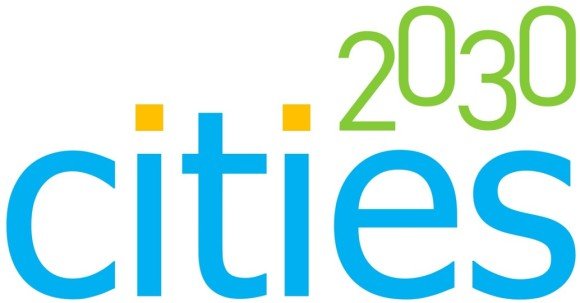- Welcome
- CRFS Description
- Living lab description
- Living: Innovation action plan
- Stories from the lab
- Lab festival
- The first experiment
- The second experiment
- The third experiment
- The fourth experiment
- The fifth experiment
- The sixth experiment
- Policy: Policy Action Plan
- Food System Dialogue
- Access history
- Members

The fourth experiment
B2B vehicle sharing
This experiment is B2B oriented, but based on our third vision; ‘ People do business with low impact on the environment’.
The challenge here is : ‘the food supply must be local and is organized in a circular way. The process and the distribution is based on preserving the natural resources by using renewable energy.’ Brugge has an ancient center area with a lot of hotels, pubs, tearooms, restaurants and shops. To deliver those companies, a lot of suppliers bring the food, drinks and non-
food with big trucks or vans (with cooling) all the way through the small, ancient streets.
In this experiment, we want to research if it would be possible to set up an ‘electrical vehicle sharing platform’. The zero-emission vehicles with cooling, used for the meal delivery of the elderly, are used in the morning but are standing still and unused in the afternoon. Maybe we can set up a collaboration with other firms to share those vehicles.
The aim is to create a delivery system in the city that is more sustainable, with a lower impact on CO2.
In that way, we contribute to Cities2030 key objective ‘Enhance circularity and local food belts’ and thematic working group ‘processing’and ‘distribution’.
We will investigate which companies are willing to set up a test pilot and try to convince them to cooperate. When the experiment is running, we can easily calculate the CO2 impact on the environment.
Motivation:
The motivation behind this experiment is to explore the potential of establishing a business-to-business (B2B) electrical van vehicle sharing network and knowledge exchanging platform. The increasing demand for sustainable transportation options, coupled with the growing interest in collaborative business practices, presents an opportunity to leverage electrical vans for B2B purposes. This experiment aims to evaluate the feasibility and benefits of such a network and platform, including reduced environmental impact, cost savings, and knowledge exchange among businesses.
Rationale:
The rationale for this experiment is based on the following factors:
- Sustainability: The need for sustainable transportation solutions to reduce carbon emissions and environmental impact is becoming more critical. Electric vans are an eco-friendly alternative to traditional combustion engine vans, as they emit zero tailpipe emissions, have lower operating costs, and can contribute to the overall sustainability efforts of businesses.
- Collaborative Economy: Collaborative business practices, such as sharing economy models, have gained momentum in recent years. This experiment aims to tap into the potential of a B2B vehicle sharing network, where businesses can share electrical vans to optimise fleet utilisation, reduce costs, and promote resource efficiency.
- Knowledge Exchange: The experiment also emphasises the importance of knowledge exchange among businesses. The platform can facilitate information sharing, best practices, and expertise among businesses, enabling them to learn from each other and collectively work towards operational excellence.
Objective:
The main objective of this experiment is to evaluate the feasibility and benefits of a B2B electrical vans vehicle sharing network and knowledge exchanging platform. The specific objectives include:
- Assessing the environmental impact: Evaluating the reduction in carbon emissions and other environmental benefits of using electric vans in a shared B2B network compared to traditional combustion engine vans.
- Analysing cost savings: Assessing the cost savings achieved through fleet optimization, reduced maintenance costs, and other operational efficiencies in a B2B vehicle sharing network.
- Evaluating knowledge exchange: Measuring the effectiveness of the knowledge exchanging platform in facilitating information sharing, best practices, and expertise among businesses, and evaluating the impact of this knowledge exchange on business performance.
Key Performance Indicators (KPIs):
The success of this experiment can be measured using the following KPIs:
- Carbon emissions reduction: Calculating the reduction in carbon emissions achieved through the use of electric vans in the B2B vehicle sharing network, compared to traditional combustion engine vans.
- Cost savings: Measuring the cost savings achieved through fleet optimization, reduced maintenance costs, and other operational efficiencies in the B2B vehicle sharing network.
- Knowledge exchange effectiveness: Evaluating the effectiveness of the knowledge exchanging platform in terms of information sharing, best practices adoption, and expertise exchange among businesses.
- Business performance: Assessing the impact of the experiment on participating businesses' performance, including improved operational efficiency, increased revenue, and enhanced customer satisfaction.
Target Groups:
The target groups for this experiment include:
- Businesses with transportation needs: Small, medium, and large businesses that require transportation services for their operations, such as logistics, delivery, and fleet management.
- Businesses interested in sustainability: Businesses that prioritise sustainability and are interested in exploring eco-friendly transportation options to reduce their environmental impact.
- Businesses interested in collaborative business practices: Businesses that are open to collaborative business practices, such as sharing economy models, and are willing to participate in a B2B vehicle sharing network and knowledge exchanging platform.
In conclusion, this experiment aims to evaluate the feasibility and benefits of a B2B electrical vans vehicle sharing network and knowledge exchanging platform, with a focus on sustainability, collaborative business practices, and knowledge exchange. The success of the experiment will be measured using key performance indicators (KPIs) related to carbon emissions reduction

